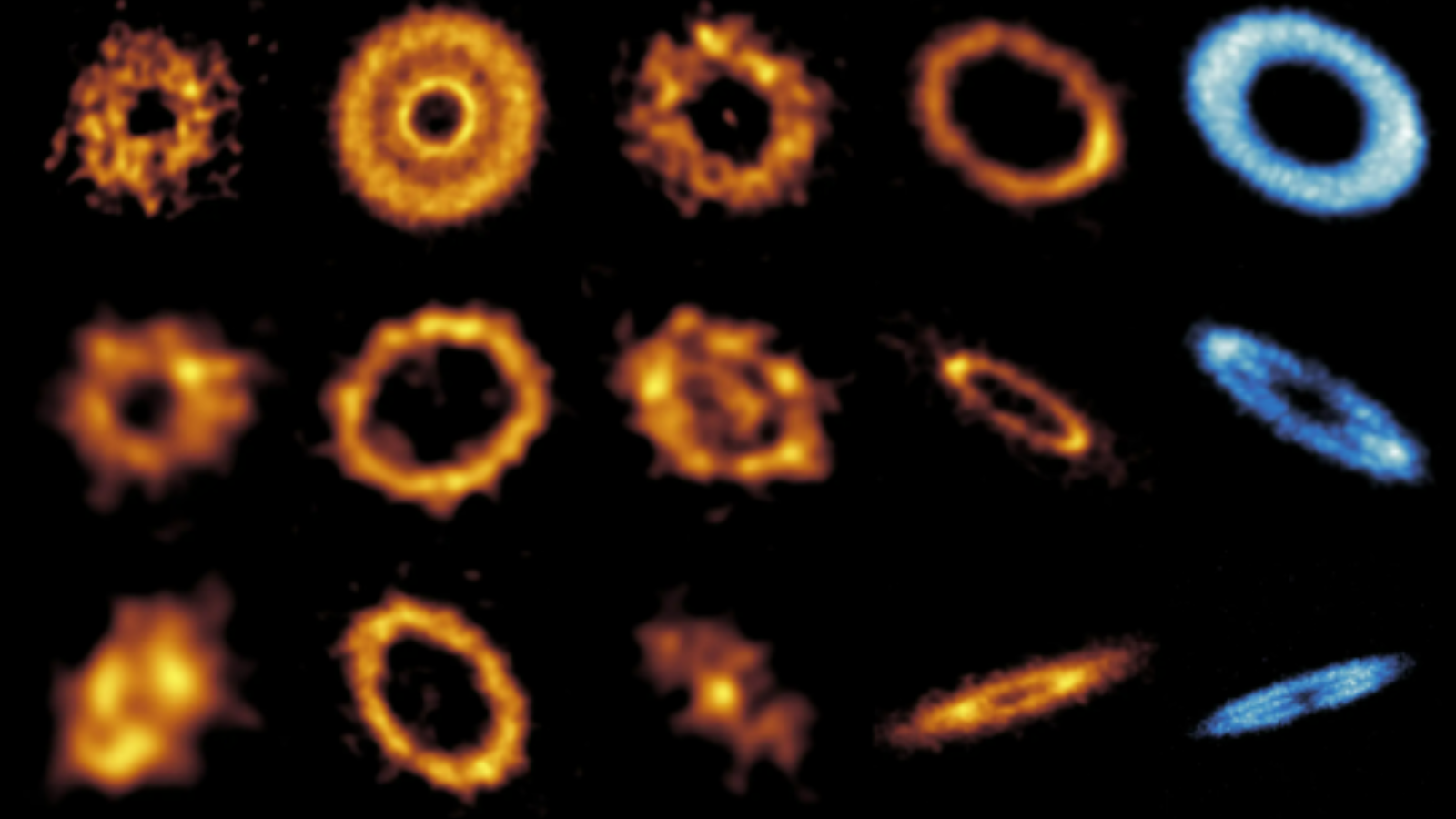Hunt for Life's Building Blocks in Space Gets NASA Boost
NASA hasissued a new grant that bolsters research into the cosmic building blocks oflife by funding observations of young solar systems throughout the universe,including our own.
Thefour-year grant sets aside $630,000 to expand operations by the New York Centerfor Astrobiology located at Rensselaer Polytechnic Institute (RPI) in New York.
Scientists atthe center study the chemical, geologic and physical conditions on Earth thatallowed life to form. They use this research to steer the huntfor alien life elsewhere, be it on Mars or in another solar systemaltogether.
Bystudying new planets that have just recently formed, scientists hope to learnmore about the different types of environments prevalent in the galaxy, as welldetermine the odds that placesbeyond Earth are habitable.
"We arelooking for the conditions of life, rather than life itself," said RPI physicistDouglas Whittet, director of the center.
Prior toplanets
Theresearchers are also investigating how planets, including Earth, gather the materials they need for lifeto take hold.
Breaking space news, the latest updates on rocket launches, skywatching events and more!
Chemicals criticalto the foundation of life first formed from molecules cooked through stellarprocesses, Whittet said. These chemicals may have formed in clouds of gassurrounding stars and then piggybacked their way to Earth on meteorites that crashedinto our planet..
"A lotof organicmolecules present on Earth may have been delivered shortly after it wasformed," Whittet said. "We aim to find out what was happening in thesolar system 4.5 billion years ago when [this happened]. When and how was thismatter synthesized and how common is it?"
Molecularclouds and disks surround stars and evolve into planets as matter accumulates. Observingradiation from these regions reveals information about their chemicalcomposition, and possibly, their contribution to life's building blocks. Sofar, there are promising indications that complex chemistry began inpre-planetary disks.
Chemistryand planets form together
While earlyuniverse compounds of hydrogen and helium make up the gas bundles around stars,organic molecules like alcohols and hydrocarbons are more common in the disks,Whittet said.
However,some of the most important building blocks for life so far appear to be scarce.
"Themost common material we've found is carbon dioxide, which is not very useful inmaking life," Whittet said. "It would be a lot more interesting ifthe carbon were going into hydrocarbons, which are a stepping point to muchmore complicated molecules."
Currently,scientists are analyzing data from the Spitzer Space Telescope, an infraredtelescope orbiting the sun, collected from 2003 to 2009.
"There'sa huge archive of data that's being analyzed, and the grant will afford usaccess to more of that material," Whittet said.
- Gallery - Strangest Alien Planets
- Top 10 Extreme Planet Facts
- Color-Changing Planets Could Hold Clues to Alien Life
Zoe Macintosh is a science writer who covered human spaceflight, astronomy and science for Space.com in 2010. She also covered general science for Space.com's sister site Live Science. Zoe studied English literature and physics at Smith College, where she also wrote for the Smith Sophian. Her work has also appeared in the National Association of Science Writers website.
